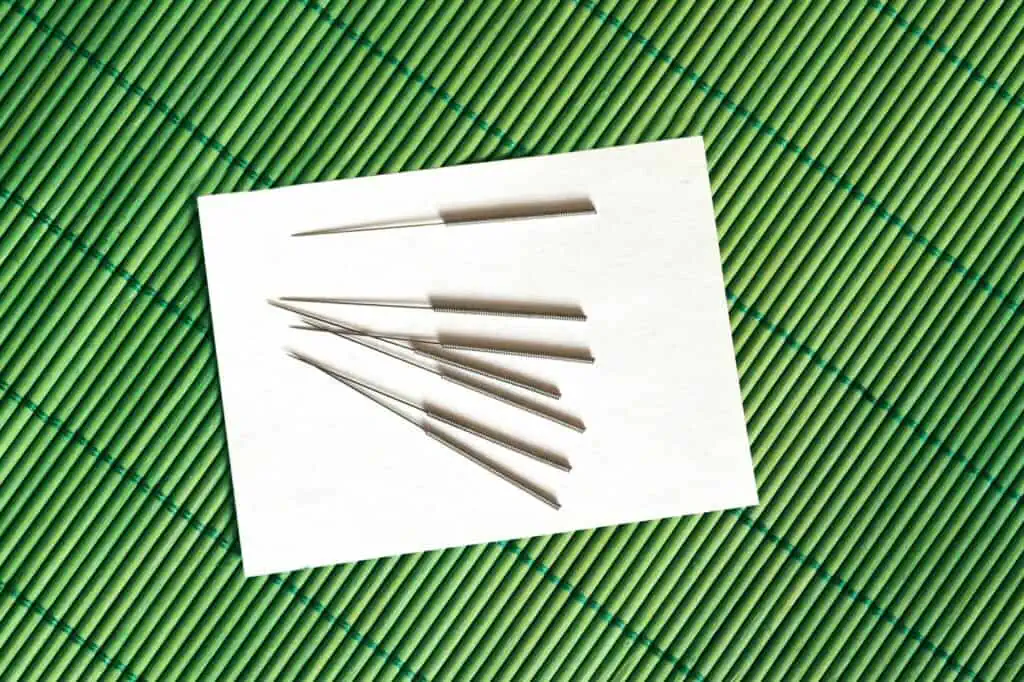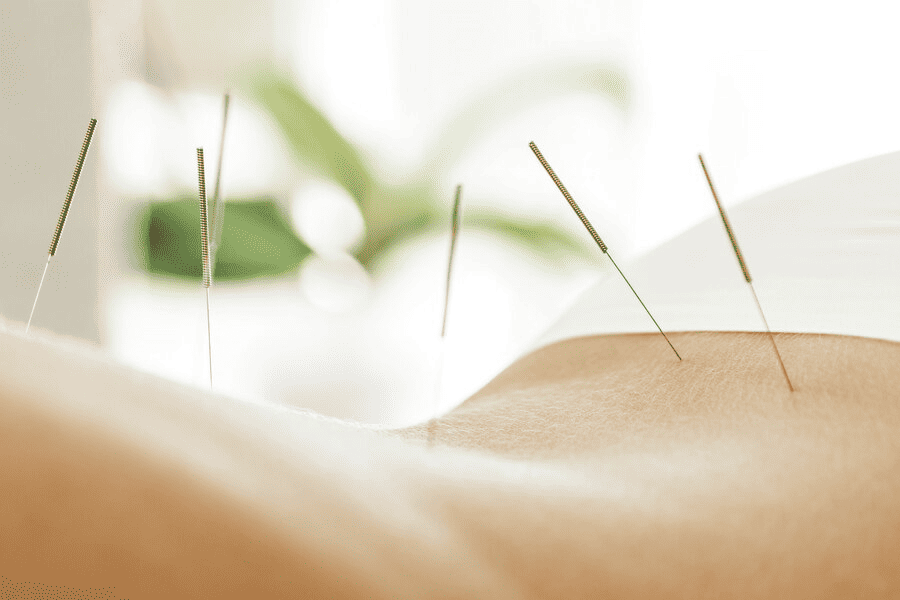Acupuncture is a traditional healing practice originating from ancient China. This therapeutic technique involves the insertion of thin needles into specific points on the body, aiming to alleviate various ailments and promote overall well-being. While its effectiveness has been debated, recent studies have shed light on how acupuncture impacts the body’s nervous system, offering intriguing insights into its mechanisms and health benefits.
Origins of Acupuncture: A Brief History
The roots of acupuncture can be traced back thousands of years to ancient China. Developed as part of Traditional Chinese Medicine (TCM), acupuncture has evolved through centuries of practice and refinement. Ancient texts dating back to around 100 BCE document the use of needles for therapeutic purposes, highlighting its significance in early medical practices. Over time, acupuncture spread beyond China’s borders, influencing medical traditions across Asia and eventually gaining recognition worldwide.
Understanding Acupuncture: The Basics
At its core, acupuncture involves the insertion of thin needles into specific points on the body, known as acupuncture points or acupoints. These points are believed to correspond to channels or meridians through which vital energy, or Qi, flows.
By stimulating these points, acupuncturists aim to restore balance within the body, addressing a wide range of physical and emotional ailments. While the practice may seem simple, it is guided by complex theories and diagnostic principles unique to TCM.
The Intriguing World of Acupuncture Points
Acupuncture points are key landmarks on the body where needles are inserted during treatment. These points are meticulously mapped out along meridians—pathways through which Qi is believed to flow. Research suggests that acupuncture points coincide with areas rich in nerve endings, blood vessels, and connective tissue.
Each point is associated with specific therapeutic effects, and skilled acupuncturists select points based on the individual’s condition and TCM diagnosis.

How Does Acupuncture Work?
Acupuncture stimulates the release of endorphins, the body’s natural pain-relieving chemicals, promoting pain relief and a sense of well-being.
Additionally, acupuncture may modulate the activity of neurotransmitters such as serotonin and dopamine, which play roles in mood regulation and pain perception. By targeting specific points on the body, acupuncture may also influence the autonomic nervous system, regulating functions such as heart rate, digestion, and immune response.
Exploring the Role of the Nervous System
The nervous system serves as a central player in the body’s response to acupuncture. Acupuncture’s effects on the nervous system are multifaceted, involving both local and systemic responses. Local effects include the activation of sensory nerve fibers at acupuncture points, which transmit signals to the spinal cord and brain, triggering various physiological responses.
Systemic effects encompass broader changes in neural pathways, neurotransmitter levels, and autonomic function, impacting overall health and well-being. Understanding these neurobiological mechanisms is crucial for unraveling acupuncture’s therapeutic potential.
Acupuncture and Neurological Responses
When needles are inserted into acupuncture points, they stimulate sensory receptors in the skin and underlying tissues, initiating a cascade of neural responses. These responses travel along nerve pathways to the spinal cord and brain, where they are processed and integrated.
Research suggests that acupuncture may modulate the transmission of pain signals, inhibit the perception of pain in the brain, and promote the release of endogenous opioids, contributing to analgesia and pain relief. Additionally, acupuncture’s effects on the nervous system may extend beyond pain management, influencing mood, sleep, and stress responses.
Neurotransmitters: Key Players in Acupuncture
Neurotransmitters play a crucial role in mediating the effects of acupuncture on the nervous system. Acupuncture has been shown to affect the release and activity of various neurotransmitters, including endorphins, serotonin, dopamine, and gamma-aminobutyric acid (GABA).
Endorphins, often referred to as the body’s natural opioids, are released in response to acupuncture stimulation, contributing to pain relief and feelings of euphoria. Serotonin and dopamine, neurotransmitters involved in mood regulation and reward pathways, may also be modulated by acupuncture, offering potential benefits for conditions such as depression and anxiety.
The Brain’s Response to Acupuncture
Acupuncture’s effects on the brain are a subject of ongoing research, with neuroimaging studies providing valuable insights into its neural mechanisms. Functional magnetic resonance imaging (fMRI) and positron emission tomography (PET) scans have revealed changes in brain activity and connectivity following acupuncture treatment.
These changes involve regions associated with pain processing, emotion regulation, and autonomic function, suggesting that acupuncture modulates neural networks involved in these processes. By understanding how acupuncture influences brain activity, researchers hope to optimize treatment protocols and identify new therapeutic targets for neurological and psychiatric disorders.
Modulating Pain Signals with Acupuncture
Pain relief is one of the most well-known applications of acupuncture, with acupuncture being used to manage acute and chronic pain conditions. Acupuncture’s analgesic effects are thought to involve multiple mechanisms, including the activation of endogenous pain modulation pathways, the release of neurotransmitters, and the modulation of neural activity in pain-processing regions of the brain.
By targeting specific acupuncture points associated with pain relief, acupuncturists can help alleviate discomfort and improve the quality of life for individuals suffering from various pain-related conditions.
Stress Reduction and the Nervous System
Stress is a pervasive problem in modern society, contributing to numerous health issues ranging from anxiety and depression to cardiovascular disease and immune dysfunction. Acupuncture has been recognized for its stress-relieving effects, with research suggesting that it modulates the body’s stress response system, known as the hypothalamic-pituitary-adrenal (HPA) axis.
Acupuncture may reduce levels of stress hormones such as cortisol, while promoting the release of endorphins and other neurotransmitters associated with relaxation and emotional well-being. By calming the nervous system and promoting a state of balance, acupuncture offers a holistic approach to stress management.
Acupuncture’s Influence on Autonomic Functions
The autonomic nervous system (ANS) plays a vital role in regulating involuntary bodily functions such as heart rate, blood pressure, digestion, and respiratory rate. Imbalances in the ANS can contribute to a wide range of health problems, including hypertension, gastrointestinal disorders, and anxiety disorders.
Acupuncture has been shown to modulate autonomic function, promoting a state of homeostasis and improving overall physiological function. By stimulating specific acupuncture points, acupuncturists can regulate sympathetic and parasympathetic activity, helping restore balance to the autonomic nervous system and enhance health and well-being.
Neuroplasticity: Reshaping the Brain through Acupuncture
Neuroplasticity refers to the brain’s ability to reorganize and adapt in response to experience, injury, or disease. Acupuncture has been found to promote neuroplastic changes in the brain, influencing the structure and function of neural circuits involved in pain processing, emotion regulation, and cognitive function.
Through repeated stimulation of acupuncture points, acupuncture may enhance synaptic connectivity, promote neurogenesis, and modulate neurotransmitter levels, leading to long-lasting changes in brain function. Understanding how acupuncture influences neuroplasticity holds promise for developing new treatments for neurological and psychiatric disorders and optimizing the effectiveness of acupuncture therapy.

Insights from Modern Research Studies
Advances in scientific research have provided valuable insights into the mechanisms and efficacy of acupuncture. Modern studies have used sophisticated imaging techniques, biochemical assays, and clinical trials to investigate acupuncture’s effects on the nervous system and its therapeutic potential for various health conditions.
While some findings support acupuncture’s effectiveness for pain relief, stress reduction, and other health benefits, others remain inconclusive, highlighting the need for further research and rigorous methodology. By combining traditional wisdom with contemporary scientific inquiry, researchers aim to unlock the full potential of acupuncture as a safe and effective therapy for promoting health and well-being.
Clinical Applications of Acupuncture for Nervous System Disorders
Acupuncture has shown promise as a complementary therapy for various nervous system disorders, including chronic pain, migraine headaches, neuropathy, stroke rehabilitation, and neurodegenerative diseases. Clinical trials have demonstrated acupuncture’s effectiveness in reducing pain intensity, improving functional outcomes, and enhancing quality of life for patients with these conditions.
Additionally, acupuncture may be used to manage symptoms such as anxiety, depression, insomnia, and cognitive impairment, offering a holistic approach to neurological and psychiatric care. Integrating acupuncture into multidisciplinary treatment plans can provide patients with additional options for symptom management and promote overall well-being.
Integrating Traditional Wisdom with Contemporary Science
The integration of traditional wisdom with contemporary science is central to understanding and advancing acupuncture. While acupuncture has been practiced for thousands of years based on ancient principles of TCM, modern research has provided new insights into its mechanisms of action and clinical applications.
By combining traditional acupuncture techniques with evidence-based approaches, practitioners can optimize treatment protocols and enhance patient outcomes. Moreover, collaboration between acupuncturists, researchers, and healthcare professionals from diverse disciplines can facilitate interdisciplinary dialogue and foster innovation in acupuncture research and practice.
Unraveling the Full Potential of Acupuncture
As research into acupuncture continues to evolve, exciting opportunities lie ahead for unlocking its full potential. Future studies may focus on elucidating the molecular and cellular mechanisms underlying acupuncture’s effects on the nervous system, refining acupuncture techniques and protocols for specific health conditions, and exploring novel applications of acupuncture in preventive medicine and wellness promotion.
Additionally, advancements in technology, such as wearable devices and real-time neuroimaging, may offer new tools for studying acupuncture’s effects on the body and brain in real-world settings. By embracing innovation and collaboration, researchers and practitioners can continue to push the boundaries of acupuncture and harness its healing power for the benefit of individuals and communities worldwide.
As we conclude our exploration into how acupuncture affects the body’s nervous system, it’s clear that acupuncture points play a pivotal role in promoting health and well-being. At ActiveMed Integrative Health Center in Encinitas, we offer a comprehensive approach to holistic healthcare, blending ancient wisdom with modern innovation.
If you’re curious about how acupuncture and other natural therapies can support your health goals, we invite you to contact us today at 858-673-4400 or email us at info@activemedhealth.com. Let’s embark on a journey towards optimal wellness together. Discover the transformative power of acupuncture and other natural medical services at ActiveMed Integrative Health Center.



